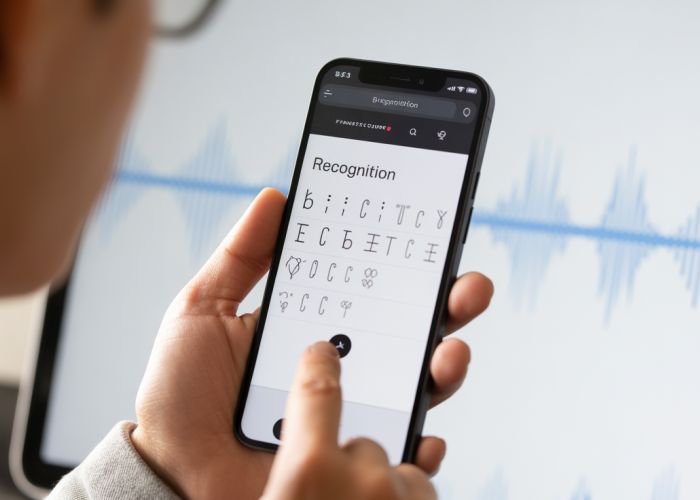Understanding articulation, a key element in phonetics, profoundly impacts the pronunciation of recognition. The nuances of stress and intonation, taught at institutions like the International Phonetic Association (IPA), are essential to mastering this word. Many online resources, such as those offered by Merriam-Webster, provide audio examples which aid in clear communication and help overcome common mispronunciations, ensuring you can confidently tackle the tricky pronunciation of recognition.

Mastering the Pronunciation of Recognition: A Step-by-Step Guide
This guide breaks down the often-mispronounced word "recognition" into manageable parts, offering clear steps and practice exercises to help you confidently say it correctly. We’ll focus on the key elements influencing the "pronunciation of recognition".
Understanding the Challenges
Many English speakers struggle with the pronunciation of "recognition" due to several factors:
- The "g" sound: The "g" in "recognition" isn’t a hard "guh" sound, but rather a softer sound often influenced by the vowel that follows.
- Vowel Reduction: Some of the vowels in "recognition" are reduced, meaning they are shorter and less distinct than they would be in other words. This can make the pronunciation muddy.
- Stress Pattern: The stress pattern can be tricky. Knowing where to place the emphasis is crucial for clear pronunciation.
Breaking Down the Word: Syllable by Syllable
Let’s divide "recognition" into its syllables to understand how to pronounce each part:
- Rec-: Pronounced like "wreck". Think of a car wreck.
- Og-: Here, the "o" is a short "o" sound, as in "on".
- Ni-: A short "i" sound, as in "in".
- Ti-: The "ti" here often sounds like "sh," especially in American English. So, this syllable becomes "shun."
- On: Pronounced as it’s written; the vowel is a short "o" sound.
Therefore, the phonetic transcription would be approximately: /ˌrek.əɡˈnɪʃ.ən/.
The Importance of Stress
The primary stress in "recognition" falls on the third syllable ("Ni"). This means that syllable should be pronounced slightly louder and clearer than the others. Correct stress dramatically improves the "pronunciation of recognition."
- Incorrect stress can make the word sound awkward or even unrecognizable.
- Practice saying the word slowly, emphasizing the "Ni" syllable.
Tips and Techniques for Improving Your Pronunciation
Here are some practical tips to help you master the "pronunciation of recognition":
- Listen to Native Speakers: Use online dictionaries or pronunciation websites (like Merriam-Webster or YouGlish) to hear how native English speakers pronounce the word. Pay attention to the rhythm and stress.
- Record Yourself: Record yourself saying "recognition" and compare it to the recordings of native speakers. This will help you identify areas where you need improvement.
- Practice Slowly: Start by saying the word very slowly, focusing on each syllable. Gradually increase your speed as you become more comfortable.
- Use a Mirror: Watch your mouth movements in a mirror as you pronounce the word. This can help you ensure that you are forming the sounds correctly.
- Pay Attention to the "g": As mentioned earlier, the “g” has a softer sound. It should be a quick, soft sound that does not cause the word to sound "choppy".
Common Mistakes and How to Avoid Them
Many learners make these common mistakes:
- Saying "Rec-o-nize-ation": Avoid adding extra syllables. "Recognition" only has five syllables.
- Ignoring the "sh" sound in "ti": Remember that the "ti" in the fourth syllable often sounds like "sh".
- Misplacing the Stress: Make sure the stress falls on the third syllable ("Ni").
Practice Exercises
Here are some exercises to help you practice the "pronunciation of recognition":
- Repetition: Say the word "recognition" repeatedly, focusing on the stress and rhythm.
- Minimal Pairs: Practice distinguishing "recognition" from similar-sounding words (e.g., "recognized," "cognition").
- Sentence Practice: Use "recognition" in sentences to practice pronunciation in context. For example:
- "She received recognition for her hard work."
- "Facial recognition technology is becoming more common."
- "He sought recognition from his peers."
Pronunciation Drills Table
This table presents a structured drill for syllable-focused pronunciation.
| Syllable | Pronunciation Cue | Example Word (Sound-alike) | Practice Phrase |
|---|---|---|---|
| Rec- | "wreck" sound | Wreck | "Rec-ognition is key." |
| Og- | Short "o" (like "on") | On | "Og-nition requires focus." |
| Ni- | Short "i" (like "in") | In | "Ni-ce work on pronunciation!" |
| Ti- | "shun" sound | Nation | "Ti-me for some shun-shine!" |
| On | As written (short "o") | On | "The final on-set of recognition is great!" |
Frequently Asked Questions About Pronouncing "Recognition"
Got tripped up on the "recognition" pronunciation? Here are some common questions to help you nail it.
Why is "recognition" pronunciation so difficult?
The word "recognition" has a few challenging aspects, including the silent ‘g’ and the multiple vowel sounds. Many find the shift from the ‘rec’ syllable to the ‘cogn’ syllable awkward. Plus, regional accents can further influence how the pronunciation of recognition is perceived.
What’s the best way to break down the word for easier pronunciation?
Try breaking "recognition" into its syllables: rec-og-ni-tion. Practice each syllable slowly, emphasizing the ‘og’ sound and the short ‘i’ in ‘ni’. Pay close attention to the stress on the ‘cog’ syllable.
Is there a common mispronunciation of "recognition" I should avoid?
Yes, one common mistake is pronouncing the ‘g’ in the ‘cogn’ syllable. Remember it’s silent. Another common error is misplacing the stress, putting it on the first syllable instead of the second.
How can I improve my "recognition" pronunciation quickly?
Listen to native speakers pronounce "recognition" online or in recordings. Repeat after them, focusing on the rhythm and stress. Record yourself saying it and compare it to the model pronunciation. Consistent practice will significantly improve your pronunciation.
Alright, you’ve got the tools and knowledge to nail the pronunciation of recognition! Go forth and pronounce with confidence – you’ve got this!